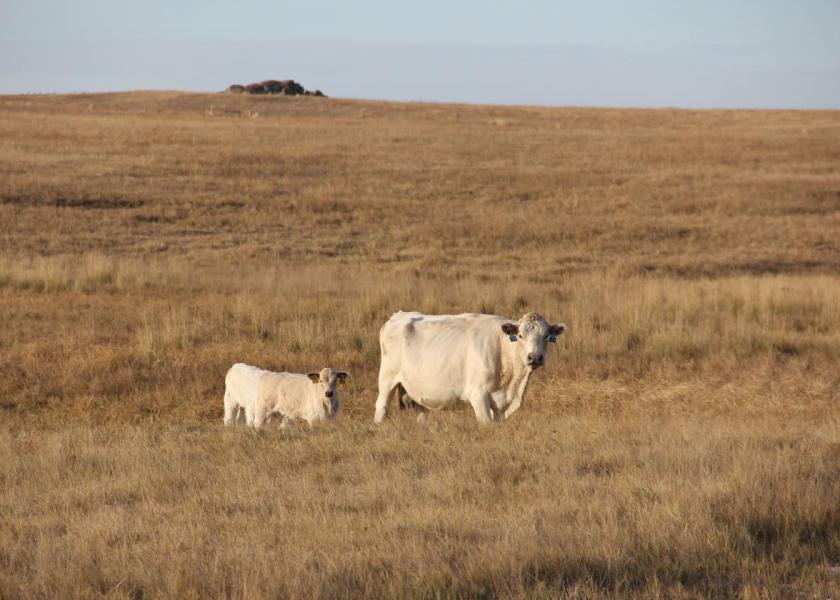Dealing with Drought Webinar to Assist Cow-Calf Producers with Decision Making

The K-State Research and Extension Beef Team and related subject matter specialists will host a webinar on May 19, 2022, from noon to 1 pm CT, to provide information and answer questions to help producers weigh options associated with current feed prices and forage availability.
Drought is not a new issue to cow-calf producers in Kansas, but the combination of a cool, dry spring, increased days of high wind and low humidity on top of the global economic impacts of a war and pandemic, make this year unique. The extended outlook indicates drought will persist in a good portion of the western United States including western Kansas.
“Producers are faced with challenging decisions since harvested feed supplies are depleted or gone and the outlook for pasture production is well below normal in much of the state. Record high prices for many production inputs are another factor,” says Sandy Johnson, KSRE extension beef specialist in Colby.
The webinar will open with some general comments and then transition to a town hall format to address audience questions. In addition to beef specialists, ag economists, and other subject matter specialists will be available during the session.
The webinar is free and open to all; however, registration is required. If you miss the webinar, a recording will be posted at KSUBeef.org as soon as possible after the meeting. Register at https://tinyurl.com/KSUdrought.







